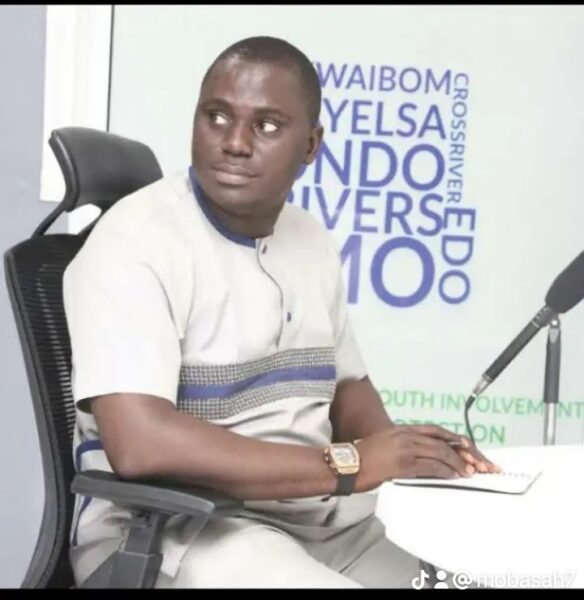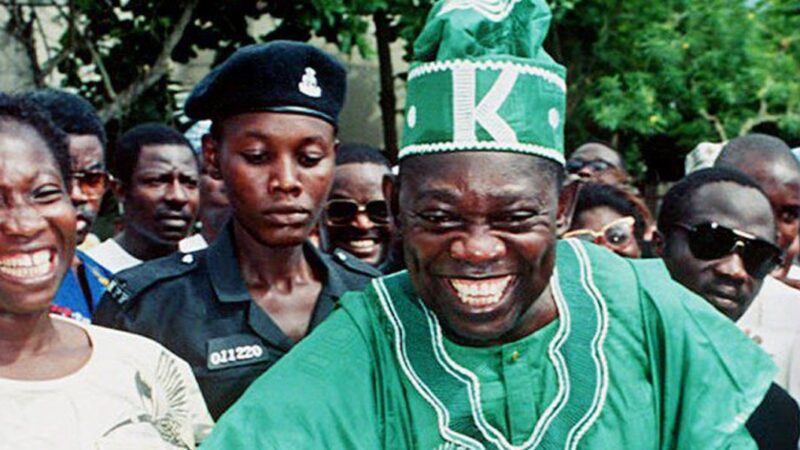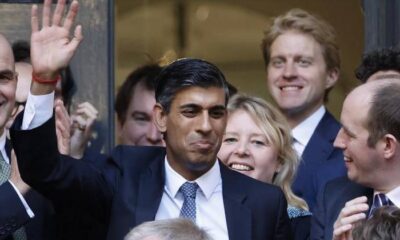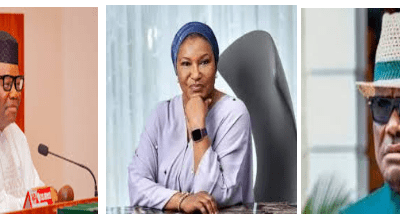Economic Issues
Beyond The Minimum Ongoing Wage Debates: The Need To Address Nigeria’s Economic Realities -By Mohammed Basah
The extravagant lifestyles of Nigeria’s political and ruling class starkly contrast with the struggles of the average citizen. While the political elite continue to benefit from a dysfunctional system, the masses are left to fend for themselves. This disparity highlights the systemic issues within the economy, where resources are misallocated, and the needs of the populace are often secondary to the interests of the powerful few.

The debate over the minimum wage in Nigeria has resurfaced with renewed intensity, as the Nigeria Labour Congress (NLC) and the federal government lock horns over what constitutes a fair living wage. While the arguments on both sides focus on specific numerical values, it is crucial to understand that minimum wage is not merely a number. It is fundamentally about ensuring that citizens can afford the basics of a decent living. In a nation where 133 million people live in multidimensional poverty, the discourse should transcend numbers and address the underlying issues affecting the economy and citizens’ well-being.
The current debate is rooted in recent economic policies that have exacerbated the cost of living. President Bola Tinubu’s inaugural declaration that “subsidy is gone,” coupled with the directive for forex rate harmonization without a clear strategy for improving forex supply, has triggered significant economic shocks. These policies, intended to stabilize the economy, have instead intensified inflation and reduced purchasing power, making the current minimum wage proposals insufficient to meet the basic needs of the average Nigerian.
The National Minimum Wage Act mandates a minimum wage across all sectors in Nigeria, including the private sector. This law aims to protect workers from exploitation and ensure a baseline standard of living. However, the enforcement and uniform application of this law pose challenges, particularly for government projects at various levels. As the biggest spender in the economy, the government’s adherence to minimum wage laws significantly impacts its budget and the viability of numerous projects.
One of the critical issues with the minimum wage debate is its failure to account for the relentless rise in the cost of living. Inflation, driven by factors such as the removal of fuel subsidies and forex rate adjustments, erodes the real value of any set wage. The figures currently under discussion do not adequately reflect the inflationary pressures faced by citizens. This disconnect underscores the need for a more dynamic approach to wage setting that considers economic realities and ensures wages remain sufficient over time.
The NLC initially championed the cause of a higher minimum wage with commendable vigor. However, their rigid stance has allowed the political class to regain control of the narrative, using the issue to bolster their popularity ahead of upcoming elections. This politicization of the minimum wage debate distracts from the core issue: the need for a productive economy capable of catering to the needs of all its citizens.
The extravagant lifestyles of Nigeria’s political and ruling class starkly contrast with the struggles of the average citizen. While the political elite continue to benefit from a dysfunctional system, the masses are left to fend for themselves. This disparity highlights the systemic issues within the economy, where resources are misallocated, and the needs of the populace are often secondary to the interests of the powerful few.
A singular focus on increasing the minimum wage overlooks the broader economic reforms needed to ensure sustainable development and equitable wealth distribution. While a higher minimum wage can provide temporary relief, it does not address the structural issues causing economic instability. Economic diversification is essential to create a resilient economy. Nigeria must diversify its economic base beyond oil. Investing in sectors like agriculture, manufacturing, and technology can generate employment and reduce dependency on volatile global oil prices.
Establishing robust social safety nets, such as unemployment benefits and universal healthcare, can protect vulnerable populations from economic shocks and reduce the burden on wage adjustments to provide a decent standard of living.
Tackling corruption is critical to ensuring that public funds are used effectively for development projects that benefit the masses. Transparent governance can restore public trust and create a more equitable distribution of resources.
Investing in education and skills training can enhance productivity and empower citizens to participate actively in the economy. A skilled workforce is essential for driving innovation and attracting investments.
Improving infrastructure, such as roads, electricity, and internet connectivity, can boost economic activities and reduce the cost of doing business, making it easier for businesses to thrive and pay fair wages.
The crux of the minimum wage debate is often missed in public discourse: increasing the minimum wage alone does not solve the underlying economic problems. It is a temporary fix that does not address the root causes of poverty and inequality. Without comprehensive economic reforms, any wage increase will be quickly eroded by inflation and rising living costs.
The minimum wage debate between the NLC and the federal government is a critical issue that demands careful consideration and holistic solutions. It is not just about setting a numerical value but about creating an economy that ensures all citizens can afford the basics of a decent living. The political class must move beyond populist measures and address the systemic issues that hinder economic growth and equitable wealth distribution. By focusing on long-term economic reforms and inclusive policies, Nigeria can create a sustainable path to prosperity for all its citizens.
Mohammed Basah is the National Coordinator, Civil Society Alliance for Transparency and Development (CSATD), a coalition of ci”il society organizations in Nigeria dedicated to promoting transparency and sustainable development. With years of experience in advocating for economic justice and policy reforms, I have a deep understanding of the socio-economic challenges facing our nation, particularly in relation to poverty and wage issues.









